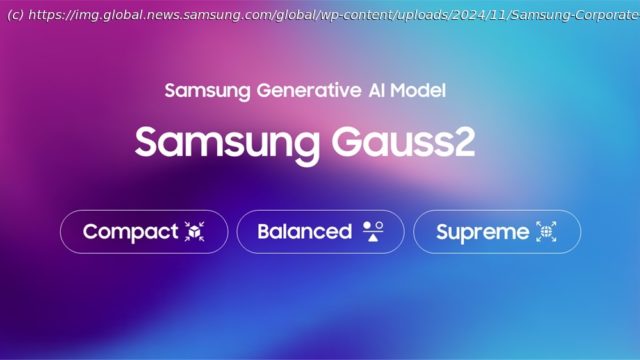Company’s virtual event highlights its latest software innovations and vision Company introduces Samsung Gauss2, the second-generation of its generative AI model
Company’s virtual event highlights its latest software innovations and vision
Company introduces Samsung Gauss2, the second-generation of its generative AI model
Samsung Electronics today hosted the Samsung Developer Conference Korea 2024 (SDC24 Korea), a virtual event that showcased the company’s latest software innovations and vision for the future.
Since 2014, Samsung Electronics has held this annual event to engage and collaborate with software developers, making SDC24 Korea the 11th iteration. This year’s conference highlighted research related to software embedded in products such as generative AI, software platforms, IoT, healthcare, communications and data. It also delved into the culture of open-source development.
During the keynote address, the company unveiled Samsung Gauss2, the second generation of its proprietary AI model, and highlighted its improved performance, efficiency and various application possibilities.
“Samsung Electronics is committed to developing cutting-edge software, including AI and data analytics, to enhance user experiences,” said Paul Kyungwhoon Cheun, President, CTO of the Device eXperience (DX) Division and Head of Samsung Research. “With three distinct models, Samsung Gauss2 is already boosting our internal productivity, and we plan to integrate it into products to deliver higher levels of convenience and personalization.”
Samsung Gauss2: A Multimodal Language Model Catering to Diverse Needs
Samsung Gauss2 is the follow-up to the company’s internal generative AI model unveiled last year, and it offers improved performance and efficiency in simultaneously handling various data types as a multimodal model integrating language, code and images. It is available in three distinct models catered to different purposes: Compact, Balanced and Supreme.
The Compact model is a small-sized model specifically designed to work efficiently, even in limited computing environments.






